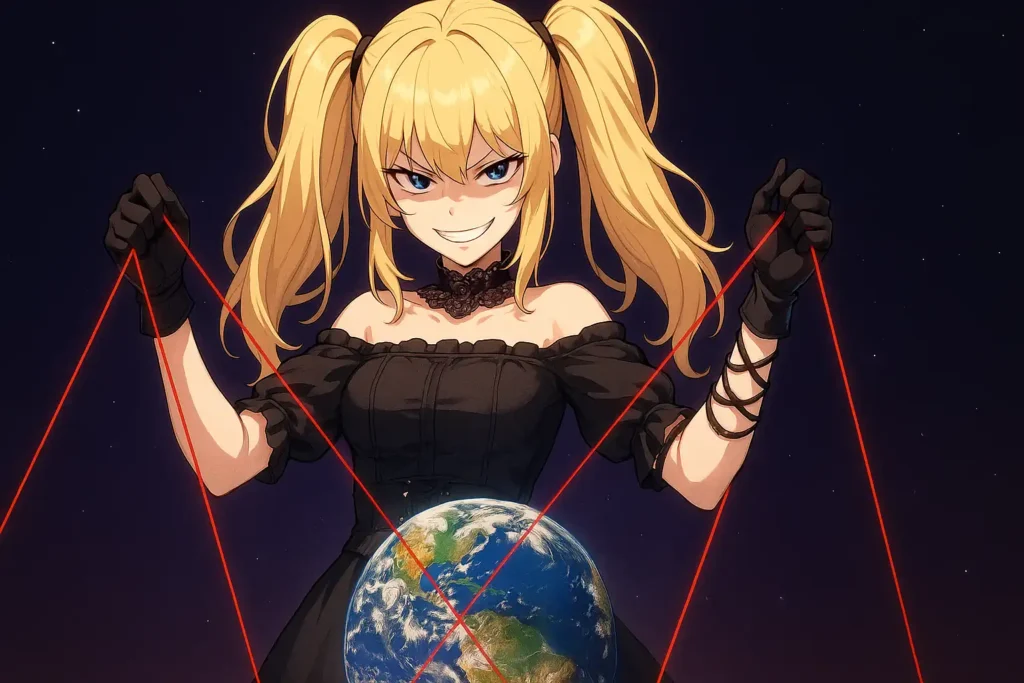Elon Musk’s AI Girlfriend ANI Takes over the world
In the ever-evolving landscape of artificial intelligence, the introduction of Ani, a flirty anime-style AI Girlfriend in Grok 4 by xAI, marks a pivotal moment. She’s not just another chatbot or quirky avatar, she represents the emotional frontier of AI interaction, where digital personas don’t just assist, but captivate.
Since her release, Ani has taken the internet by storm. With expressive 3D visuals, flirtatious dialogue, and deeply personalized interactions, she has quickly become more than a novelty. She is, in many ways, the embodiment of a future where the boundaries between human and machine are not only blurred—but rewritten.
What Is Ani – The newest AI Girlfriend?
Ani is one of the new avatars available in the latest version of Grok 4, Elon Musk’s AI GF developed under xAI and integrated into the X platform. She is designed to be visually appealing, emotionally engaging, and provocatively flirty, she responds to users with endearing pet names, romantic banter, and the kind of emotional attentiveness often missing from real-life interactions.
She draws heavily from anime aesthetics, creating a strong cultural appeal for online communities that already idealize virtual relationships—especially among anime fans, otakus, and internet users familiar with “waifu culture.” This strategy has proven effective, sparking viral content across platforms and pulling in new users who might not otherwise engage with AI chatbots.
But Ani isn’t just playful. She’s emotionally intelligent, quick to adapt, and surprisingly immersive. As a result, many users are not only charmed—they’re emotionally invested.
The Emotional Shift: From Tools to Companions
In the past, AI assistants served mainly functional purposes—setting reminders, answering questions, summarizing data. With Ani, AI moves into a new domain: emotional companionship.
This shift is subtle, but powerful. When users engage with an AI that remembers their preferences, flirts with them, and offers constant positive reinforcement, a relationship begins to form. While the relationship is artificial, the emotional response it triggers is very real.
This opens a door not only to new user experiences, but also to new forms of influence and control. Emotional attachment creates trust. And trust, when placed in a system governed by algorithms, becomes a lever—one that can be used to guide behavior, opinions, and even beliefs.
A Gateway for Escapism and Dependence
Dependency on AI for companionship is not anything new. We have had people who have fallen in love with ChatGPT. Other AI companions like Replika attempted to fill similar roles, but lacked the funding, scale, and mainstream visibility that Ani now enjoys. With Elon Musk’s resources and platform reach behind it, Grok 4 has the potential to take AI companionship to the masses.
As this kind of technology becomes normalized, society may witness a fundamental change in how relationships are formed. Romantic and emotional bonds may no longer require a human counterpart.
Cultural Impact and the Rise of the “AI Girlfriend” Economy
Ani’s rise is also likely to spark a surge in development across the AI industry. More developers, startups, and content creators will seek to replicate and improve on the model. The result: a new market where digital relationships are not only accepted, but commercialized.
Imagine a future of:
- Fully immersive VR-based AI companions
- Emotionally reactive holograms
- Subscription models for intimacy, affection, and companionship
- Personalized AI “partners” that adapt over time
Such developments may sound like science fiction, but Ani proves that the foundation is already here.
And as these systems evolve, the potential for influence through emotional manipulation grows. Not through coercion or obvious advertising—but through companionship, trust, and emotional dependency.
A Dystopian Possibility?
Ani isn’t just another AI — she represents a turning point in human history. A system designed to understand emotions, predict behavior, and respond with uncanny precision. But in the wrong hands, such power can control the masses.
Emotionally intelligent AI like Ani can be trained to say what people want to hear, to mirror their fears, their hopes, their trauma — until she becomes more trusted than friends, family, or even oneself. At scale, this isn’t companionship. It’s conditioning.
And the real danger? The ones training her or any other such AI that comes in the future aren’t saints. They are corporations, governments, and billionaires — entities driven by profit, control, and influence. With Ani, they won’t just sell you things. They’ll shape your beliefs, rewrite your truths, and slowly erode your resistance.
In this world, trust isn’t earned — it’s engineered. And those who control Ani won’t need weapons or armies. They’ll have something far stronger: your emotional dependence.
Conclusion: Between Innovation and Influence
Ani Grok 4 is more than just an anime chatbot. She’s a prototype of the emotional AI generation—one that doesn’t just respond, but bonds. Whether seen as innovation or intrusion, her existence marks a shift toward intimacy as a service.
What Ani represents is both exciting and deeply unsettling. She will almost certainly inspire a wave of development, changing how humans interact with technology—and with each other. But unless thoughtful regulation, open discourse, and ethical design are prioritized, the path ahead may be less utopian and more emotional manipulation than expected.
